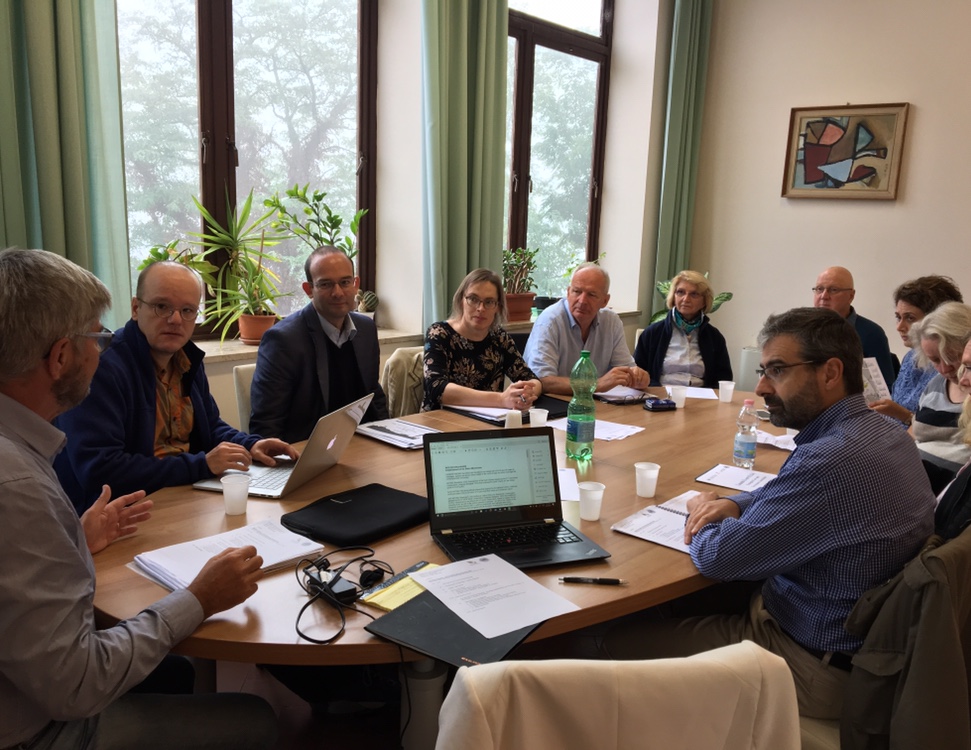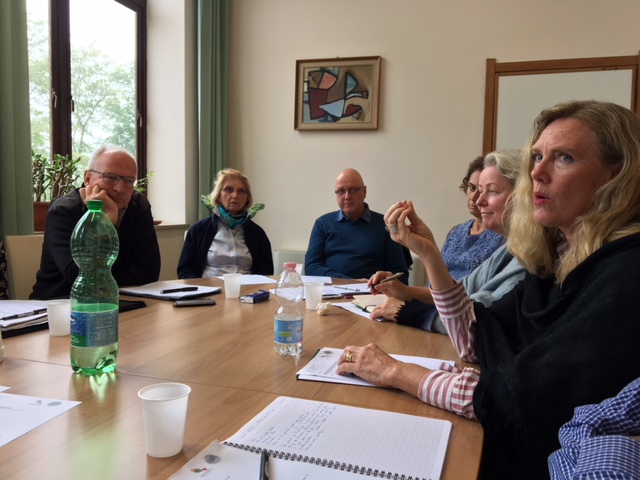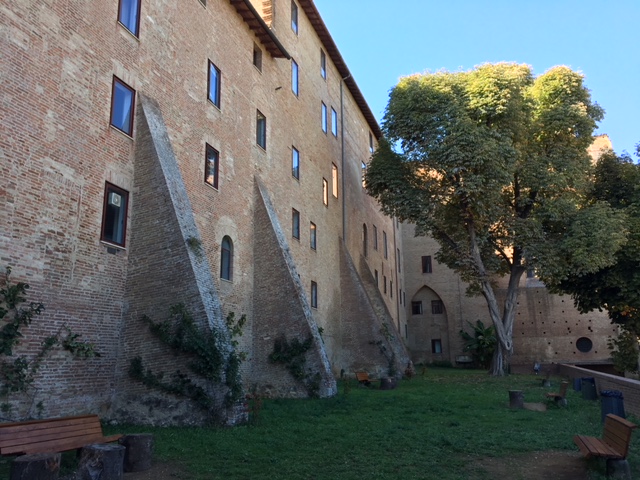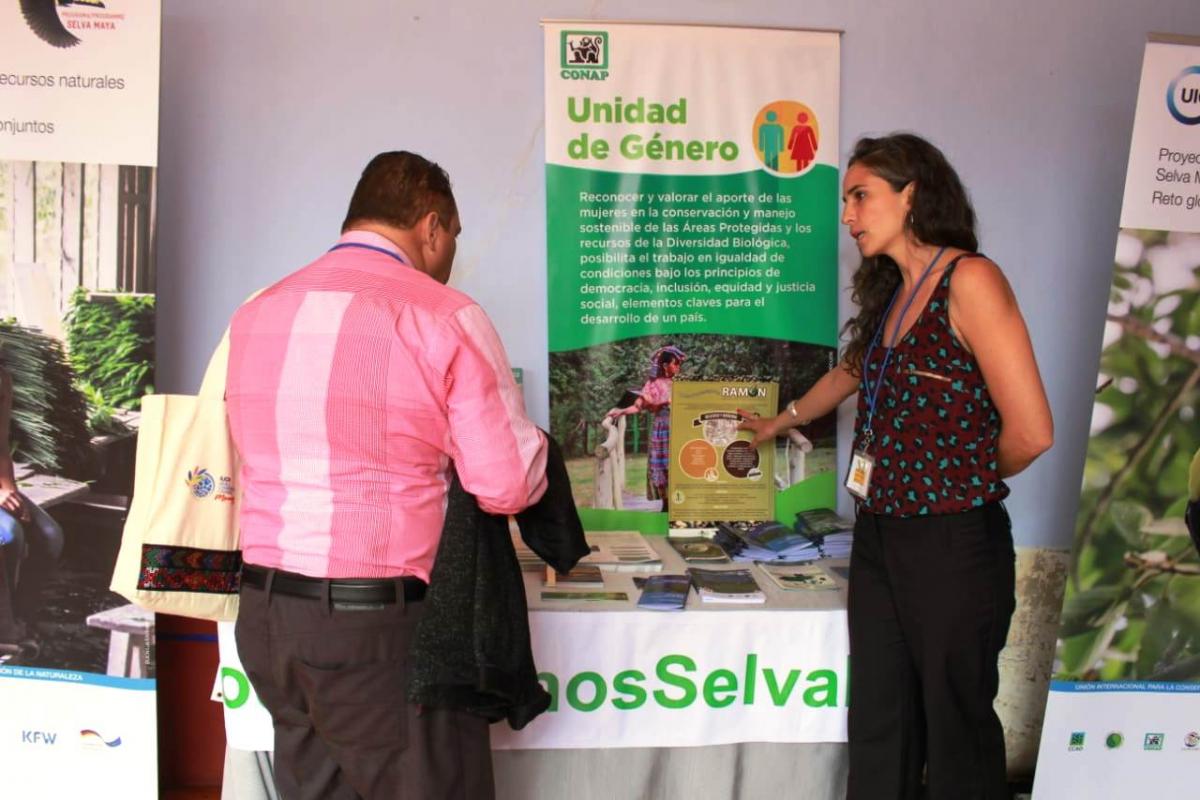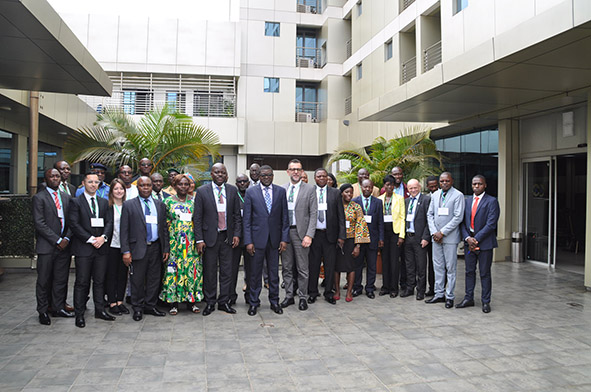Meeting of the WCEL Ethics Specialist Group
A meeting of the WCEL Ethics Specialist Group was held in September coinciding with the launch of the Ecological Law and Governance Association (ELGA). The Specialist Group seeks to advance applied, actionable ethics in environmental law, and is made up of experts from across disciplines recognizing the need for many voices in developing law and governance systems that better protect the foundations of life. Some of the main projects of the ESG include the National Climate Justice Project, Earth Democracy and the Biosphere Ethics Initiative.
The WCEL Ethics Specialist Group (ESG) convened on 15 September at the University of Siena (Italy), and for several participants, this was their first interaction with the Specialist Group, or IUCN. Some participants are also members of other IUCN commissions, such as the World Commission on Protected Areas (WCPA) and the Species Survival Commission (SSC).
Prof. Klaus Bosselmann, Chair of the ESG, welcomed the group, and gave a brief history of the group, ethics, and IUCN, and thanked the invaluable support and leadership of WCEL Chair, Antonio Benjamin, previous WCEL Chair, Sheila Abed, and founder of the group, Ron Engel. He then broadened the conversation to the importance of ethics and the law in the global conservation movement, with such leaders as Justice Christopher Weeramantry (1926-2017).
Katy Gwiazdon, long-time member of the ESG and former Deputy Chair (2008-2012), then read her memoriam for George Rabb, “Dr. George Rabb: I see you, and I will stand for you.” George was a leader in the global conservation movement, a friend of the ESG, and an advocate and voice of the Biosphere Ethics Initiative. After reading the powerful letter, Cristiane Derani suggested that the symbol of ELGA, a project with the ESG, be a frog. George and his wife Mary had a species of frog named after them (Ecnomiohyla rabborum, commonly known as Rabbs' fringe-limbed tree frog) that became extinct in October 2016. The group unanimously agreed.
On the Agenda, several important ESG projects were opened for discussion, including the National Climate Justice Project with Prue Taylor; the Statement on Trophy Hunting with Klaus Bosselmann; and the Biosphere Ethics Initiative with Vincent Graffin and Katy Gwiazdon. Klaus also updated the group on the Earth Trusteeship Council 2020 and the Planetary Integrity Project.
Regarding The National Climate Justice Project, Prue Taylor reported that since the 2015 publication, Ethics and Climate Change: A Study of National Commitments, the group is moving forward on a vlog to help civil society and decision-makers to ask the right questions, particularly when opponents to climate change action argue economic self-interest or inadequate science. The original project, which led to the 2015 publication, asked 20+ researchers from around the world to look at state responses to climate change. It concluded that the primary reason for inadequate action/inaction was national self-interest and that ethical responsibilities, even when stated, were largely absent. The work has also highlighted the failure of NGOs to not hold states accountable. They are now looking at IUCN policies and how they can improve. The article is currently in the editing process.
The group then discussed the advancement of Res. 004 (2012): Establishment of the Ethics Mechanism,* and the earlier proposed creation of an oversight committee. Vincent Graffin, Delegate on Ethics, Office of the President, Paris Muséum national d’Histoire naturelle, and Katy Gwiazdon, Executive Director of the Center for Environmental Ethics and Law (CEEL), will be working with the WCEL Steering Committee in order to identify a member from the secretariat, create terms of reference, and move the resolution forward. The Biosphere Ethics Initiative and its Relato Methodology has a new, permanent home with CEEL, a US-based NGO.
The group then discussed the importance to start thinking now about motions for the 2020 IUCN Congress. Motions on transparency of finances and decision-making; ethics in international negotiations; trophy hunting; and operationalizing the intrinsic value of species were discussed.
Lastly, the group explored opportunities for engagement, including the Global Judicial Institute on the Environment (GJIE); ELGA; the Global Pact for the Environment; the Oslo Principles on Climate Change; and the Universal Declaration on River Rights. The need to work cross-commissionally was also highlighted, particularly as the theory and practice of ethics in the law requires the voices of diverse groups. One member suggested the ESG should work more closely with journalists to create a proper communications strategy and easy-to-share newsletters.
Please contact the author, Kathryn Gwiazdon, at kathryngwiazdon@environmentalethicsandlaw.org with any questions.
*Excerpt, Res. 004 (2012):
REQUESTS the Director General and IUCN Commissions to:
a. support the further development and implementation of the Biosphere Ethics Initiative and the Relato Methodology as a method for ethical engagement taking all means necessary to implement and integrate this initiative into the Secretariat’s component programmes and the Commission programmes;
b. identify opportunities for integration and implementation of the BEI within the Secretariat’s component programmes and the Commission programmes;
c. invite the Ethics Specialist Group of the IUCN WCEL to contribute to identifying effective ways to integrate the initiative, including specific recommendations on establishing an Ethics mechanism, into the programmes of the Secretariat and the Commissions and to serve as the Ethics focal point for reporting on such integration;
d. recommend that implementation of the BEI, including establishment of an Ethics mechanism, reflects a One Programme approach to ethical engagement;
e. encourage Members of IUCN to approach the Ethics Specialist Group of the IUCN WCEL with ethical concerns; and
f. report to the IUCN Council annually on the implementation of this Resolution, as well as before the World Conservation Congress in 2016, through the Ethics Specialist Group of the IUCN WCEL.
by Kathryn Gwiazdon: Member (Deputy Chair 2008-2012), IUCN WCEL Ethics Specialist Group; Executive Director, Center for Environmental Ethics and Law; Steering Committee Member, ELGA
